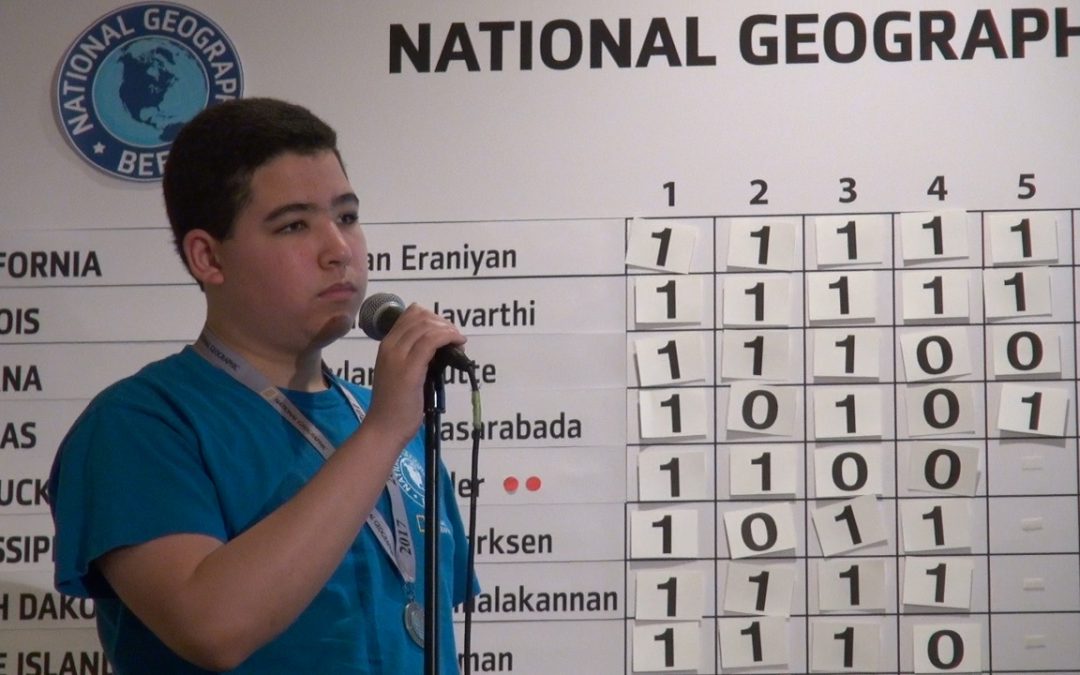by Jingnan Huo
WASHINGTON-Lexington eighth-grader Evan Winkler said Monday that representing Kentucky in the National Geographic Bee was a “blessing” even though he didn’t advance to the final round.
Winkler, 14, a student at Morton Middle School, was one of 54 students from around the country competing Monday to be one of 10 students to advance to the final round of the bee, sponsored by the National Geographic Society.
Students were asked a wide range of questions about geography, history and culture, such as which archipelagoes are home to sea otters, what Stalingrad is now called, and which landscapes are shown in Vincent Van Gogh’s “The Starry Night.”
This year’s questions have been more challenging than ever but students are doing a great job, said Kaitlin Yarnall, moderator of the preliminary rounds and director of the Center of Excellence on Geography at the National Geographic Society.
Winkler said the competition made him feel like part of a national community. “It’s great to be surrounded by like-minded people,” he said.
“I want to take this year’s competition as a blessing and learn ways in which I can improve myself in the subject matter,” Winkler said after Monday’s competition.
He started systematically preparing for the bee only after he won the state championship, said his mother, Kim Thompson.
“Preparing wasn’t that much of a difference from his everyday life,” Thompson said.
Winkler has been reading atlases and quizzing the family for years, long before he knew about the existence of the National Geographic Bee.
Thompson said geography allowed Evan to “open up” and see himself as part of an interconnected world, and she expressed gratitude to teachers Melissa Holmes and David Kitchen.
The National Geographic Bee finals will be held Wednesday. Contestants from California, Delaware, the District of Columbia, Idaho, Minnesota, New Hampshire, New Jersey, Ohio, Texas and Virginia will compete.
“Geography is one of the core ways to understanding the world, and the geographically literate society is a better society to make decisions,” Yarnall said. “It begins with kids.”

